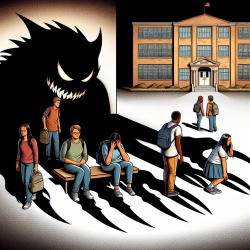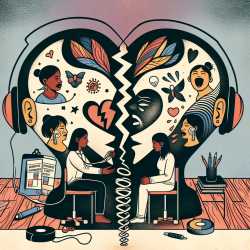Introduction
In the quest for academic excellence, many parents and students turn to shadow education, also known as private supplementary education (PSE). While this approach can boost academic performance, recent research highlights a concerning trade-off: the potential negative impact on mental health. This blog explores the findings from the study "The Heterogeneous Effects of Participation in Shadow Education on Mental Health of High School Students in Taiwan" and discusses how practitioners can use these insights to improve educational outcomes.
Understanding Shadow Education
Shadow education refers to private, fee-paying tutoring that supplements the regular school curriculum. In Taiwan, this practice is widespread, with nearly 50-70% of junior high students participating. The primary aim is to enhance performance in entrance examinations, a critical determinant of future educational opportunities. However, this study reveals that while PSE can improve academic results, it may also increase depression symptoms among students.
Key Findings
The study utilized data from the Taiwan Upper Secondary Database (TUSD) and applied advanced statistical models to analyze the effects of PSE on academic achievement and mental health. The researchers identified five distinct PSE participation patterns: always-takers, early adopters, dropouts, late adopters, and explorers. Key findings include:
- Academic Achievement: PSE participants generally outperform non-participants in entrance examinations.
- Mental Health: Always-takers, who consistently engage in PSE, show increased depression symptoms compared to their peers.
- Trade-offs: While always-takers and dropouts benefit academically, they face higher risks of depression.
Implications for Practitioners
For educators and practitioners, these findings underscore the importance of balancing academic pursuits with mental well-being. Here are some strategies to consider:
- Monitor Student Well-being: Regularly assess students' mental health, especially those heavily involved in PSE.
- Promote Balanced Learning: Encourage a balanced approach to education that includes time for relaxation and extracurricular activities.
- Educate Parents: Inform parents about the potential mental health risks associated with intensive PSE participation.
- Develop Support Systems: Create support systems within schools to help students manage stress and workload effectively.
Encouraging Further Research
This study highlights the need for further research into the long-term impacts of PSE on mental health and academic performance. Practitioners are encouraged to explore these areas to develop more comprehensive educational strategies that prioritize both achievement and well-being.
To read the original research paper, please follow this link: The Heterogeneous Effects of Participation in Shadow Education on Mental Health of High School Students in Taiwan.










